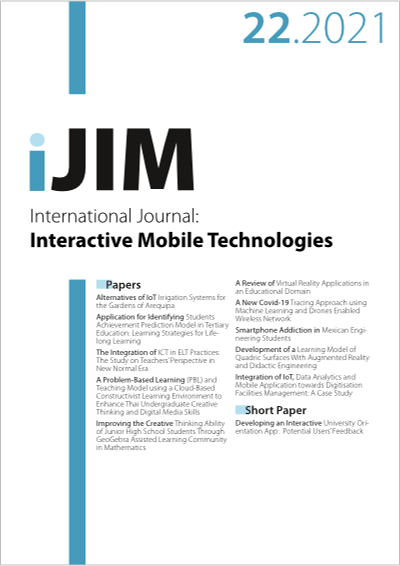A Review of Virtual Reality Applications in an Educational Domain
DOI:
https://doi.org/10.3991/ijim.v15i22.25003Keywords:
Virtual Reality, Higher Education, Learning environment, student performance.Abstract
The use of virtual reality (VR) applications has grown tremendously in recent years. This paper focuses on the review of existing virtual reality applications in higher educational institutions. The VR applications are still not widely used although it helps students in their learning process and enhances their performance. Moreover, some factors which lead to the limited use of virtual reality are lack of communication, delay in technology development, and weak acquisition of knowledge etc. This paper provides a comprehensive overview of virtual reality applications in educational institutions. The reviewed articles are taken from databases such as Science Direct, Ebscohost, and Scopus. Furthermore, the reviewed eighteen articles are published between 2016 and 2021. The study analyzed the reviewed articles based on different factors such as fields, purpose, targets, methods, citations, factors and limitations. The findings revealed that virtual reality applications can play an important role in the education domain. The reviewed articles highlighted the significant contribution of virtual reality applications in the education domain and their impact on the students' performance. Moreover, the study revealed the important factors used in VR environments such as ease of use, efficiency, interactive environments, effectiveness, and learning environments.
Downloads
Published
2021-11-19
How to Cite
Al Farsi, G., Yusof, A. bin M., Romli, A., Tawafak, R. M., Malik, S. I., Jabbar, J., & Rsuli, M. E. B. (2021). A Review of Virtual Reality Applications in an Educational Domain. International Journal of Interactive Mobile Technologies (iJIM), 15(22), pp. 99–110. https://doi.org/10.3991/ijim.v15i22.25003
Issue
Section
Papers



